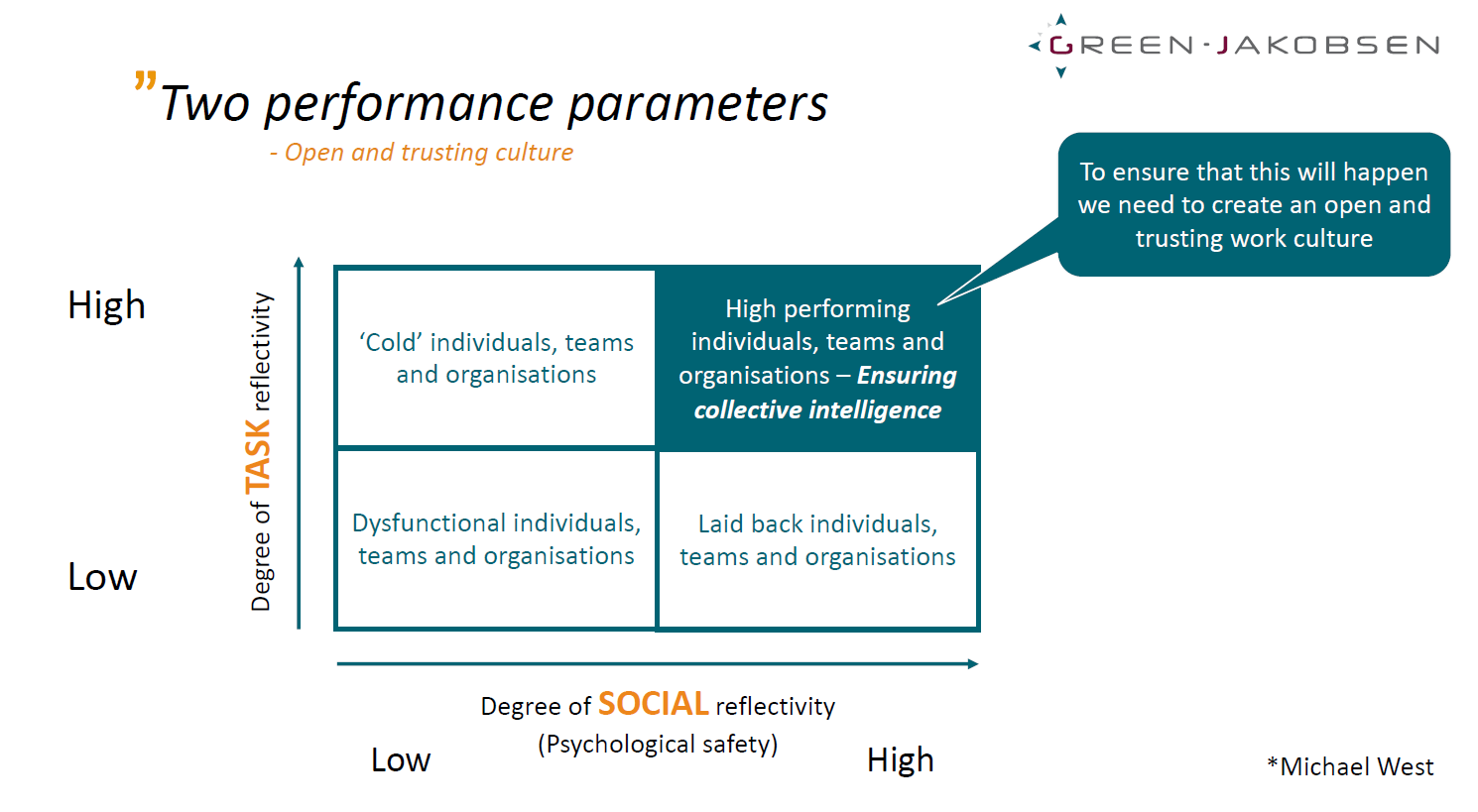During the 2023 SAFETY4SEA Athens Forum, Erik Green, Managing Director and Partner, Green-Jakobsen, pointed out that human performance is context dependent. Erik Green went on to explain that developing human and safety performance requires that we focus on collective intelligence which is strengthened when people experience psychological safety.
One of the main aspects one must understand is that human performance is not a linear progression but is influenced by changing contexts. There is a common misconception that people keep getting smarter overtime due to more education, training, and practice, but this is not quite true.
For instance, while practice is known to enhance proficiency over time, individual performance is also heavily influenced by team dynamics. Take the medical profession as an example: Surgeons’ performance is not solely determined by their experience but also by the cohesion and effectiveness of the teams they work with. Research demonstrates this phenomenon clearly: When new surgeons operate, the mortality rate stands at 1%. With increased experience, this rate decreases to 0.25%. However, when surgeons transition to new hospitals with unfamiliar teams, the mortality rate reverts back to 1%.
Changing teams could lead to a decline in performance, emphasizing the importance of considering contextual factors. Changing teams is a persistent challenge for the maritime industry, as individuals have to work with a new group of people every time they board a new vessel.

Three performance levels
Low performance is not necessarily the fault of the individual. Within any organization, we can have intelligent individuals but still have dysfunctional teams and organisations. This is the ‘gangway rule’ that underscores the notion that despite having intelligent individuals within an organization, the effectiveness of teams and the organization as a whole may still be compromised due to dysfunction. In this context, the concept of performance is defined by three levels: individual performance, team performance and organizational performance.
The two parameters of human performance
The practical lesson gleaned from the data on surgeons underscores the necessity of adopting a holistic approach to evaluating human performance. Rather than solely focusing on individual capabilities, it is crucial to consider the interplay of team dynamics and organizational factors. Even highly skilled individuals may see their effectiveness compromised if they are unable to collaborate effectively within their team or if there is a lack of cohesion within the organization.
Rather than evaluating performance simply on how well a job is done, it would be more beneficial to evaluate performance based on two parameters: the first parameter should be based on how well the individual does the job, while the other parameter should be focused on how much individuals like each other.
Psychological safety and social reflectivity
The concept of social reflectivity, or psychological safety, is a crucial factor in human performance. A focus on how well team members work with each other, in addition to how well they perform their tasks, is essential.
Psychological safety involves feeling appreciated and being able to speak up, contributing to effective teamwork.
Based on Green Jacobsen’s data, if social reflectivity levels are low, individuals tend to stop discussing their job. If the job and the way that people onboard do different tasks are not discussed, it is more likely that mistakes will be made, much like the surgeons. This is a Key Performance Indicator (KPI) that could be proven beneficial to look on.
As a result, there is a need for a continuous review process, emphasizing on regular performance reviews and discussions of the safety-critical operations. The goal is to create awareness among senior officers and crew members about areas that require attention and reviewing, leading to a continuous cycle of improvement.
It is important to note that Green Jakobsen draws data to analyse human performance from their Safety Delta platform, which continuously collects data from 50,000 seafarers who act as responders to the platform. The key element is that it is not just a single sample. Green Jakobsen continuously follows this population which provides relevant information for performance standards for the last six years, to note developments and draw conclusions.
Key conclusions
In summary, the complexity of human performance is reflected by the importance of teamwork and the need for a holistic approach that encompasses both team and organizational perspectives.
Performance reviews drive human performance but to ensure valuable performance reviews, we need psychological safety, which is best ensured when leaders actively and continuously work towards this goal.
When the crew knows that they are being reviewed, they tend to display better results. Therefore, when leaders direct their attention towards areas that influence performance and identify issues that need improvement, performance improvement can occur. Such improvement will be felt and observed by all crew members.
The views presented are only those of the author and do not necessarily reflect those of SAFETY4SEA and are for information sharing and discussion purposes only.
Above article is a transcript from Erik Green’s presentation during the 2023 SAFETY4SEA Athens Forum with minor edits for clarification purposes.
Explore more by watching his video presentation here below


































































